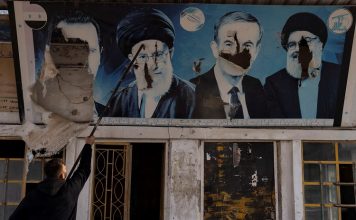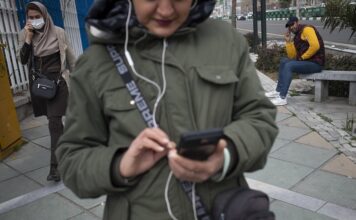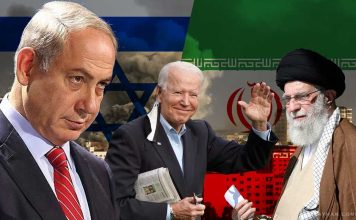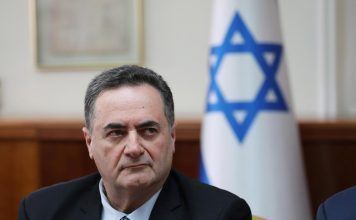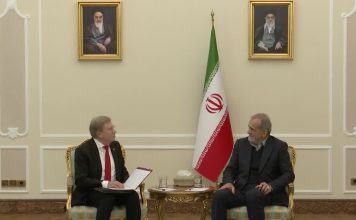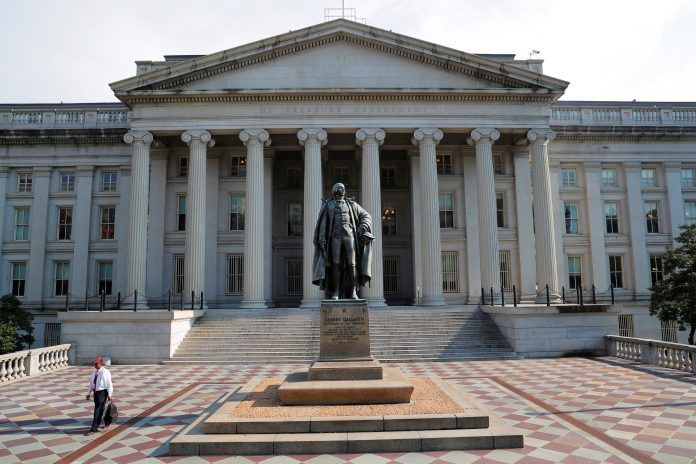
By Arshad Mohammed and Daphne Psaledakis
WASHINGTON, June 16 (Reuters) – The United States on Thursday imposed sanctions on Chinese and Emirati companies and a network of Iranian firms that help export Iran‘s petrochemicals, a step that may aim to raise pressure on Tehran to revive the 2015 Iran nuclear deal.
The U.S. Treasury department said it had imposed penalties on two companies based in Hong Kong, three in Iran, and four in the United Arab Emirates, as well as on Chinese citizen Jinfeng Gao and Indian national Mohammed Shaheed Ruknooddin Bhore.
“The United States is pursuing the path of meaningful diplomacy to achieve a mutual return to compliance with the Joint Comprehensive Plan of Action,” Under Secretary of the Treasury for Terrorism and Financial Intelligence Brian Nelson said in a statement, referring to the 2015 nuclear agreement.
Under the pact, Iran limited its nuclear program to make it harder for Tehran to obtain a nuclear weapon in exchange for relief from U.S., European Union and United Nations sanctions that had choked Iran‘s oil-dependent economy.
Then-U.S. President Donald Trump pulled out of the deal in 2018 and restored U.S. sanctions, prompting Iran to start violating the nuclear restrictions about a year later. Talks to revive the agreement have so far failed.
“Absent a deal, we will continue to use our sanctions authorities to limit exports of petroleum, petroleum products, and petrochemical products from Iran,” Nelson said.
Henry Rome, deputy head of research at the Eurasia Group, said the sanctions may aim both to raise pressure on Iran and to blunt U.S. domestic critics who argue that U.S. President Joe Biden has failed to rein in Iran‘s nuclear program.
“Washington is likely aiming to raise the costs for Iran of a continued no-deal scenario while also deflecting domestic and foreign criticism that it is allowing its Iran policy to drift,” Rome said, saying that any single sanctions action was unlikely to change thinking in Iran or China absent a broader strategy.
“Indeed, Tehran may calculate that given the state of the oil market and global inflationary pressures, a concerted (U.S.) campaign to collapse Iranian energy exports to Trump-era levels is not in the cards in the near term,” Rome added.
The nuclear pact seemed near revival in March but talks unraveled partly over whether Washington might drop the Islamic Revolutionary Guard Corps, which controls armed and intelligence forces that Washington accuses of a global terrorist campaign, from the U.S. Foreign Terrorist Organization list.
Reuters could not find contact information for Gao or Bhore to seek comment. The company that manages the building in the Indian state of Maharashtra where the Treasury Department said Bhore’s apartment was located did not respond to calls late on Thursday.
(Reporting by Arshad Mohammed, Daphne Psaledakis and Doina Chiacu; Editing by Paul Grant and Daniel Wallis)

